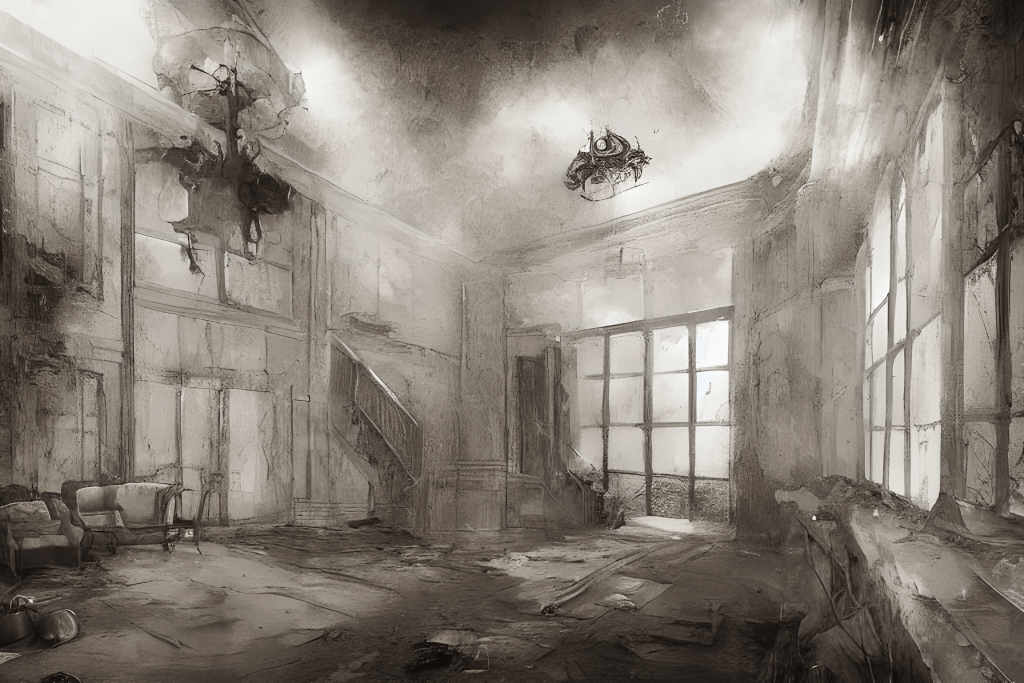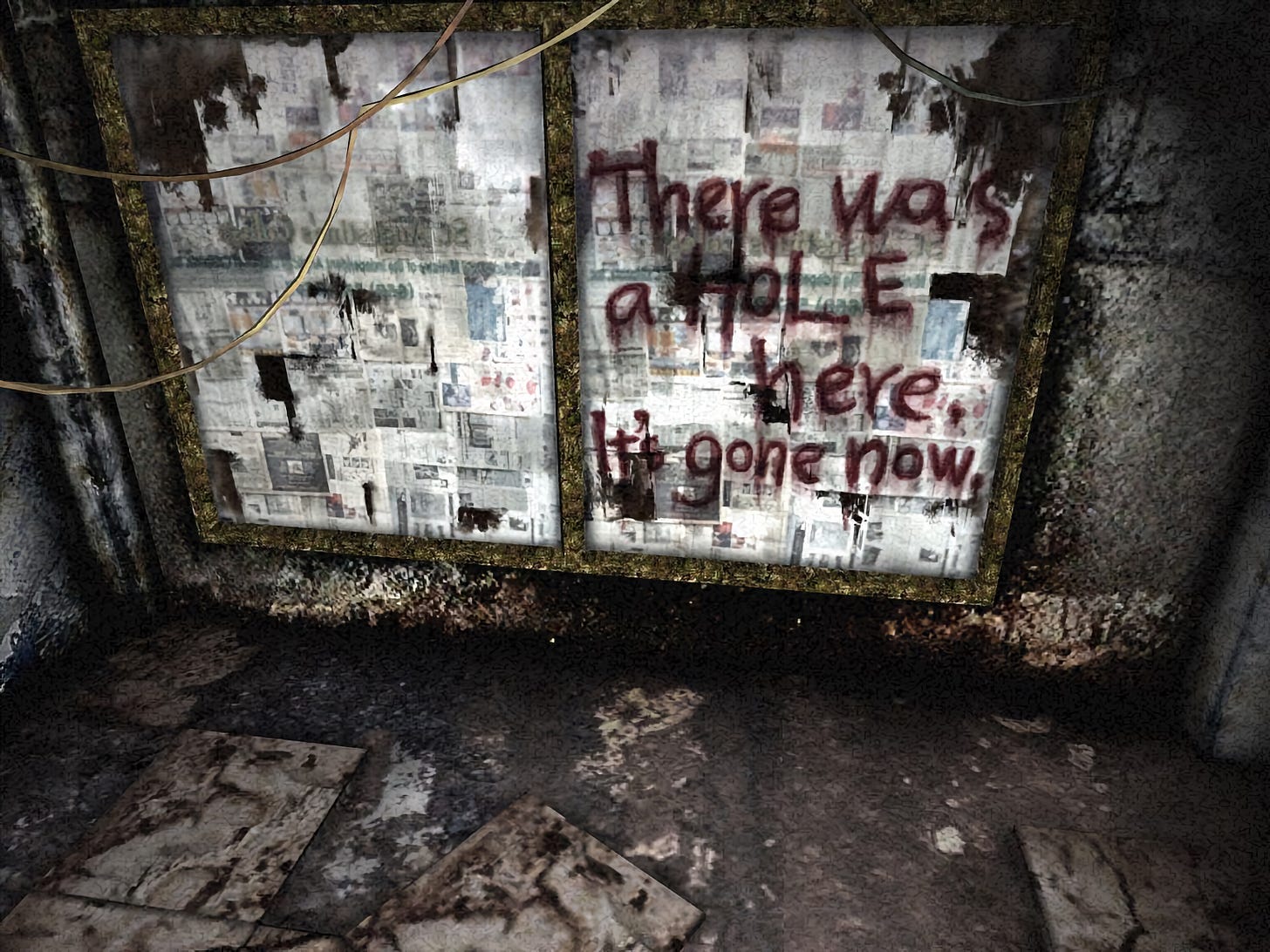House of Leaves… I know next to nothing about this book. As a matter of fact, the only thing I know about this book is that at some point the words within get all spiraled out which I found fascinating. That was enough to get me to add to my list of books to read which I will probably never complete. I bought the book for myself as a birthday present in October. Finally, on the day after Halloween, I decided to stop putting it off and dive in.
As I stated in my inaugural Substack post, my goal here is to discuss House of Leaves chapter by chapter as I read along. I will summarize the events of the book and my feelings, thoughts, and opinions on the material. I will NOT seek any outside material to help me read this aside from the dictionary and language translators. I will restate this for emphasis… please for the love of all that you find sacred and good in this universe… PLEASE NO SPOILERS!!! I consider spoilers to be one of the worst crimes against humanity, so I beg you, please don’t do it.
Anyway, without further adieu…
House of Leaves by Mark Z. Danielewski
Introduction
The first page states, “This is not for you,” and nothing else. Nothing but white space for the rest of the page. Man, what a hook… Before I bought this book at Barnes & Noble, I opened it to the first page and read those words. I closed it immediately and walked over to the cashier. I didn’t need any more convincing. I admit that the only other “horror” book that I’ve read was Pet Semetary, but these five words filled me with more dread than I ever felt reading anything else. I knew I was in for a ride with this book.
So right off the bat, I noticed that the letters forming “house” are highlighted in blue at all times, even on the cover of the book. I’m sure there is some deeper significance to this, but I find how the book plays with how readers interact with it in the physical space very, very cool. I’ve never seen this done before.
So we begin with the nameless narrator telling us about how he has nightmares and can no longer sleep. He recalls the events that lead him to his current state. Our narrator led a seemingly empty, hedonistic, bachelor’s life, going out drinking with his friend named Lude (what a weird name!) and picking up as many women as they could.
Lude mentioned to the narrator that a tenant in his building, an old man on the 1st floor, told him that he would be dying soon. Whether he did this because the narrator was then looking for a new place to live is unclear. Soon after, the old man indeed passed away from seemingly natural causes.
This is where the fun begins.
We learn a few things about the old man after his death is revealed to us. He called himself Zampanò, though that name only appeared on his apartment lease and on other “fragments” that didn’t include any form of official identification. Zampanò didn’t have any friends or family to speak of. His only company apparently were stray cats that were drawn to him whenever he took his regular strolls in the building’s courtyard and volunteers from various organizations who would read to him in his apartment, all of whom were women. The narrator tells us that although Zampanò was blind, he found comfort in a woman’s voice and presence.
So far, Zampanò seems like he’s a harmless, old, blind guy who was unfortunate enough to die utterly alone. There is nothing scary about him. His story just seems… sad. However, there is something off about all of this. Something uncomfortable. Lude calls our narrator around 3AM to meet him at the apartment building. There was no clear reason for this. The narrator knew this was weird, that this was wrong, but he did it anyway. Neither individual seemed to have any control over their actions at this point.
We learn that Goodwill was scheduled to haul away the contents of Zampanò’s apartment, whose sum total was valued less than $300, the next day. There seemed to be a sense of urgency here. Lude recounts that the stray cats had begun to disappear during the months preceding Zampanò’s death. None remained by the time he died, aside from one that was decapitated and another that was massacred beyond recognition. He also found gouges in the hardwood floor next to Zampanò’s body before the cadaver was removed. The police disregarded it entirely since there were no signs of physical trauma to Zampanò when they arrived at the scene.
When the two enter Zampanò’s now abandoned apartment, the narrator describes how its smell was “mean” and “complex.” All the windows were nailed shut and sealed with caulking. The front entrance to the courtyard was storm-proofed. All ventilation was eliminated throughout the apartment, though it was not locked. One could still walk in and out easily enough, though breathing in fresh, clean air was another story.
Lude when pointed out the main point of interest in the apartment. Words. Countless words. Words scribbled everywhere. On napkins, envelopes, backs of postage stamps, handwritten, typed, legible, illegible, damaged, undamaged, burnt, scotch-taped, folded over too many times, just… all over the place. I felt a little dizzy after reading this portion of the text. Well done, Mr. Danielewski.
Here is the next piece of writing that really resonated with me:
“...both of us slowly began to feel its heaviness, sensed something horrifying in its proportions, its silence, its stillness, even if it did seem to have shoved almost carelessly to the side of the room.”
At a glance, this just seems like Zampanò might’ve been a little insane. Maybe he had schizophrenia. But the narrator’s quote above… the proportions, the sheer lack of uniformity, the ubiquity of Zampanò’s text… it really helped to stir something inside of me as the reader. Was it fear? Maybe not. Not yet. It was something though. I kept reading.
Something compelled the narrator to take all of Zampanò’s text home with him. He tells us that in the days that followed, he resumed his mundane life as an apprentice at a tattoo parlor along with his nights out with Lude. However, he started to read small passages from Zampanò’s project every few days, usually for 10-20 minutes at a time.
Suddenly, one evening he read for 7 straight hours without realizing it. He had missed a phone call from Lude, something that he never had done before. He stopped going out at night. He stopped going out entirely. Nobody could contact him.
He sealed his apartment similar to how Zampanò did, nailing the windows shut and storm-proofing the entrances. The narrator took it one step further. He nailed measuring tapes to the floor and walls. “...this wasn’t about smell, this was about space. I wanted a closed, inviolate and most of all immutable space.” To me, this meant a space that was safe and unchanging. The narrator tells us that this didn’t help.
We now go through a time jump forward to where the narrator is now staying at a hotel, covered in blood that doesn’t all belong to him. This is where we started the book, where the narrator first told us about the nightmares. He seems to have lost touch with reality. He has loaded guns and contemplates shooting people outside his window, though he winds up just vomiting inside the hotel room’s closet.
The narrator tells that Zampanò wrote a warning the day before he died. It stated something along the lines of whoever finds and publishes his work would be entitled to all proceeds. Zampanò only wanted his name to take its rightful place (credit for it, I suppose). If readers were dismissive of the text, the adoptive author should rejoice.
“...drink plenty of wine and dance in the sheets of your wedding night for whether you know it or not, now you are truly prosperous. They say truth stands the test of time. I can think of no greater comfort than knowing this document failed such a test.”
This seems to imply that Zampanò is happy that the horrors contained in his text will be forgotten over time due to people dismissing them as fiction or as the musings of a madman. Perhaps the “truth” contained within is too traumatic for most to cope with.
The narrator reveals that Zampanò’s project is focused on The Navidson Record, a documentary film that doesn’t exist. Most of the quotations and books cited within Zampanò’s project are made up. He tells us that with some luck, we’ll dismiss his project as a bunch of nonsense and that we’ll carry on with our lives afterwards. However… something will happen once we finish reading it. It could take days, weeks, or maybe even years.
Here is where the true dread sets in. The book says it much better than I can:
“Old shelters-television, magazines, movies-won’t protect you anymore. You might try scribbling in a journal, on a napkin, maybe even in the margins of this book. That’s when you’ll discover you no longer trust the very walls you always took for granted. Even the hallways you’ve walked a hundred times will feel longer, much longer, and the shadows, any shadow at all, will suddenly seem deeper, much, much deeper.”
Holy. Shit. How fucking good is that? The Introduction section closes with this:
“Then no matter where you are, in a crowded restaurant or on some desolate street or even in the comforts of your own home, you’ll watch yourself dismantle every assurance you ever lived by. You’ll stand aside as a great complexity intrudes, tearing apart, piece by piece, all of your carefully conceived denials, whether deliberate or unconscious. And then for better or worse you’ll turn, unable to resist, though try to resist you still will, fighting with everything you’ve got not to face the thing you most dread, what is now, what will be, what has always come before, the creature you truly are, the creature we all are, buried in the nameless black of a name.
And then the nightmares will begin.”
The narrator finally signs his name, Johnny Truant. There is a lot to unpack here. There is one more thing before Chapter 1 starts. The following words appear alone on a single page, just like “This is not for you” preceded the Introduction:
“Muss es sein?”
I looked up this phrase and it comes from Beethoven’s Opus 135 String Quartet, his last completed work before his death. Three ominous notes within the piece were marked: “Muss es sein” which translates to “Must it be?” in German. So… what the hell does this all mean?
I’ll try to make sense of my thoughts and organize them in some coherent manner. From what I gather from Truant’s introduction, there seems to be some sort of dark entity, the great complexity, that… attacks you? possesses you? No, there really isn’t a word that describes what I’m trying to say here. It almost feels like Truant is describing the very essence of God, whatever that means to you. It is something primordial (Zampanò’s apartment smelled of human history), something all-encompassing and inescapable (the horrifying heaviness and proportions), something absolute.
After all, what is a human being after she is stripped of all her beliefs, values, experiences, and even her flesh and bones? What is the truth about her? Her name. But it’s deeper than that! It’s about who we fundamentally are, at the soul-level of our very core. I don’t even know what the fuck that means, but you know what? It’s scary… It’s kind of terrifying to be honest. Who am I? Who is the creature, Daniel Gerardo Marti, beyond the machinations of life on planet Earth? I don’t know. I probably can never answer that question. But nonetheless, the question is posed to us by Johnny Truant.
What really gets me too is the Beethoven piece right after. “Must it be?” Something about music trying to describe or capture the nature of this… thing… where language cannot just makes the horror more… colossal… ancient… beyond the comprehension of man.
It’s funny, I find myself typing this stuff up past 1:00AM and very little of it makes any sense to me. The only thing I know for sure is that the story that has been established thus far feels significant to me, it feels profound. Then, I’m taken back to when Truant told me that I’d find myself scribbling about this in some manner. Hell, what is my Substack aside from a book journal? Is it a coincidence that I felt the need to blog about House of Leaves of all things when I’ve never done so before in all of my 30+ years?
Probably. But, you never know… At least I still trust the four walls that surround me right now.




